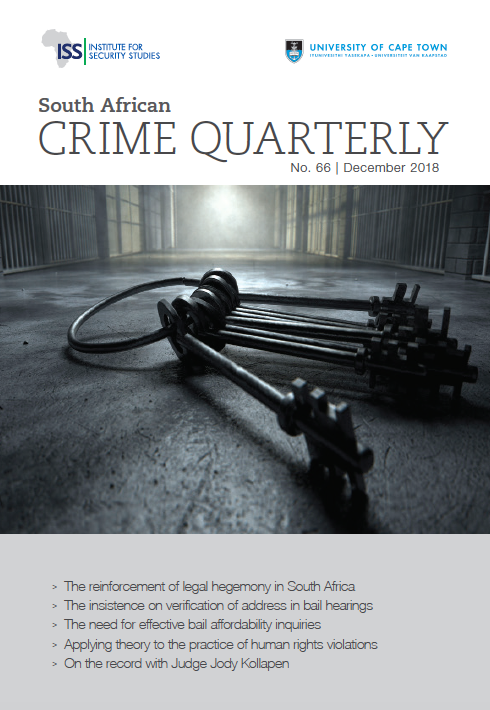Decolonising prisons in South Africa: The need for effective bail affordability inquiries
DOI:
https://doi.org/10.17159/2413-3108/2018/i66a5634Abstract
Prisons have been a major player in all countries with a history of tyrannical regimes, as people who attempted to resist repression frequently found themselves detained in prisons. Many countries have adopted democratic government, underscored by equality of all people before the law. Many states – South Africa among them – continue to make reforms to address these past injustices, and, as part of this shift, prisons across continents are attempting to decolonise. This article questions whether South Africa can decolonise its prisons, given that the country’s poor are at a higher risk of detention because they are not able to afford bail. The article focuses on the concept of cashless bail and argues that, given South Africa’s history of marginalisation and income inequality, this model can be one mechanism through which to address past injustices with a view to decolonising the country’s prisons. The article makes a strong case for the effective implementation of provisions on inquiry on affordability of cash bail as one of the means to achieve this end.
Downloads
Downloads
Published
Issue
Section
License
Copyright (c) 2018 Author and Institute for Security Studies

This work is licensed under a Creative Commons Attribution 4.0 International License.
SACQ is licenced under a creative commons licence (CC BY) that allows others to distribute, remix, tweak, and build upon your work, even commercially, as long a they give appropriate credit, provide a link to the license, and indicate if changes were made. They may do so in any reasonable manner, but not in any way that suggests the licensor endorses you or your use.
Copyright for articles published is vested equally between the author/s, the Institute for Security Studies and the Centre of Criminology (UCT).




.png)